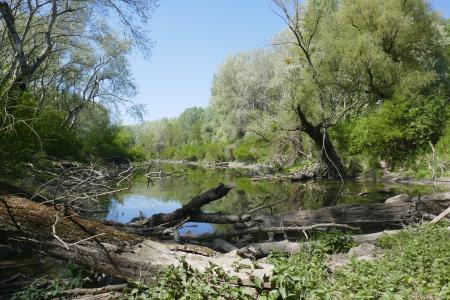
Area characterisation:
The case study is located in the Danube River eastwards of Vienna, while actions potentially benefit, transnationally, around 100km of Danube and ist tributaries. The vicinity of the stretch that is now to be restored are rural areas.
Objective:
Riverbank restorations are implemented on a stretch of approximately 800m shoreline of the Danube to increase lateral river-floodplain connectivity and the functioning of the floodplain as an ecosystem. The aim is to reach a good ecological status of the river as well as good navigation status. The case study works with an adaptive management process and adresses multiple pressures (ecological deficits, security of navigation, riverbed deepening, flood protection).
This case study is one of 17 that are part of the EU Horizon2020 project MERLIN - Mainstreaming Ecological Restoration of freshwater-related ecosystems in a Landscape context: INnovation, upscaling and transformation
Potential impacts/benefits:
The 800m shoreline that is being restored affects around 10.8 ha of floodplain area, enhancing ecosystem functioning, biodiversity and flood management.
Actions:
- riverbed widening to counteract riverbed deepening
- recycling of removed riprap (circular economy)
- use of an integrative and adaptive catalogue of measures instead of inflexible large-scale projects
Organisations:
University of Natural Resources and Life Sciences, Institute of Hydrobiology and Aquatic Ecosystem Management (BOKU), viadonau - Österreichische Wasserstraßengesellschaft mbH (Federal Austrian waterways company)
Global goals:
-
3. Good Health and well being
-
6. Clean water and sanitation
-
13. Climate action
-
14. Life below water
-
15. Life on land
NBS goals:
- Restoring ecosystems and their functions
- Multi-functional nature-based watershed management and ecosystem restoration
NBS benefits:
- Developing climate change adaptation; improving risk management and resilience
- Flood peak reduction
- Increase infiltration / Water storage
- Reduce flood risk
- Reduce load to sewer system
- Restoring ecosystems and their functions
- Increase achievements of biodiversity targets
- Increase quality and quantity of green and blue infrastructures
- Improve water quality
- Increase awareness of NBS solution & their effectiveness and co benefits